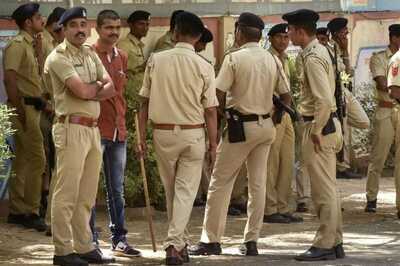
views
The Supreme Court has held that prolonged incarceration of undertrial prisoners violates the constitutional principles of dignity and liberty. The top court has thereby diluted a bail condition of a Nigerian national ordering production of a certificate of assurance from the High Commission for his appearance so as to ensure his presence during the trial in a drug trafficking case.
A bench of Justices Hrishikesh Roy and Pankaj Mithal allowed an appeal filed by Ejike Jonas Orji against the specific condition imposed by the Delhi High Court in its order passed on June 13, 2022.
The SC also noted that the petitioner had been in jail for over nine years. The accused was aggrieved by the condition imposed by the High Court stating that he shall not be released on bail without such a certificate of assurance from the High Commission of Nigeria.
“Admittedly in the course of last seven years, the trial could not be concluded and we are informed that out of twenty witnesses, only thirteen have been examined so far. We are also informed that the Special Court in Delhi where the trial is being conducted is overloaded with about 400 trial cases,” the bench held.
His counsel contended the condition caused serious prejudice to his client as he is a Nigerian national and the High Commission of Nigeria is unlikely to grant him the certificate of assurance, while further pointing out that he is married to a citizen of India and the couple have a child, both of whom are residing in the capital.
Additional Solicitor General KM Nataraj, appearing for the Narcotics Control Bureau, contended the bail condition was imposed by the HC by following the rulings of this court in Supreme Court Legal Aid Committee representing undertrial Prisoners Vs. Union of India & Ors (1994).
After going through the submissions, the bench said that the liberty of an accused who is facing a prolonged trial deserves the attention of the court.
“Prolonged incarceration of undertrial prisoners violates the constitutional principles of dignity and liberty. In this case, even though bail was granted, the accused could not be released due to an onerous condition,” the SC said.
The bench also cited the judgement of the Supreme Court in Hussainara Khatoon v Home Secy, State of Bihar (1980) where it was held that Article 21 includes within its ambit the right to speedy trial. It was further held that the procedure under which a person is deprived of personal liberty should be “reasonable, fair and just”.
The top court cited another judgement, Muslim @ Hussain v State (NCT of Delhi) (2023), dealing with the bail plea of an undertrial prisoner, in which the petitioner was also an accused under the NDPS Act,1985. It stated that the said judgement had reflected on the urgency to ensure that trials involving special laws with stringent provisions are taken up and concluded speedily.



















Comments
0 comment